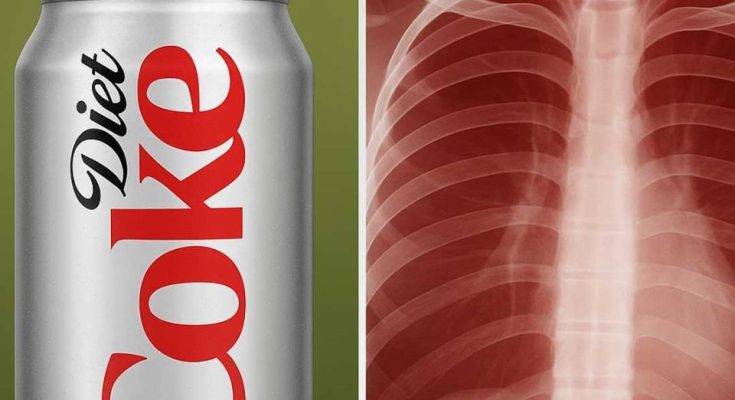Diet soda has become a staple in the beverage industry, often marketed as a healthier alternative to regular soda due to its low or zero-calorie content. It gained popularity in the late 20th century, appealing to those seeking to reduce calorie intake without sacrificing the enjoyment of a sweet, fizzy drink. Brands like Diet Coke and Pepsi Zero Sugar have become household names, and the diet soda market continues to thrive as consumers look for ways to manage weight and reduce sugar consumption. However, the question remains: what are the actual effects of drinking diet soda on the body?
Understanding the Ingredients in Diet Soda
Diet sodas are primarily composed of carbonated water, artificial sweeteners, flavorings, acids, and preservatives. The most common artificial sweeteners used include aspartame, sucralose, and saccharin. These sweeteners are many times sweeter than sugar, allowing manufacturers to use them in small quantities to achieve the desired sweetness without adding calories. Other ingredients like phosphoric acid and citric acid contribute to the tangy flavor and help preserve the beverage, while caffeine is often added for its stimulating effects.
The Science Behind Artificial Sweeteners
Artificial sweeteners are synthetic sugar substitutes that provide sweetness without the calories associated with sugar. Aspartame, for example, is about 200 times sweeter than sugar and is metabolized into phenylalanine, aspartic acid, and methanol, which are naturally occurring compounds in the body. Sucralose, on the other hand, is not metabolized by the body and is excreted unchanged. While these sweeteners are approved by regulatory agencies like the FDA, their long-term health effects are still a subject of ongoing research and debate.
Top 10 Effects of Drinking Diet Soda on Your Body
While diet soda is often chosen for its calorie-free appeal, its consumption can have various effects on the body, some of which are still being studied. Here are ten potential impacts of drinking diet soda:
1. Impact on Metabolism and Weight Management
Contrary to popular belief, some studies suggest that diet soda may not aid in weight loss and could potentially contribute to weight gain. The sweet taste without calories might confuse the body’s metabolic processes, leading to increased hunger and cravings for sugary foods, which can result in higher calorie intake overall.
2. Effects on Insulin Sensitivity and Blood Sugar Levels
Research indicates that artificial sweeteners may affect insulin sensitivity. Some studies have shown that consuming diet soda could lead to an increase in insulin resistance, a risk factor for type 2 diabetes. The body’s response to the sweet taste without actual sugar might disrupt normal insulin regulation.
3. Influence on Appetite and Cravings
Diet soda’s intense sweetness can alter taste preferences and increase cravings for sweet, high-calorie foods. This can lead to a cycle of consuming more sugary foods, potentially undermining the calorie-saving benefits of choosing diet soda.
4. Potential Impact on Heart Health
Some studies have linked diet soda consumption to an increased risk of cardiovascular events. While the exact mechanisms are not fully understood, it is suggested that the combination of artificial sweeteners and other ingredients might contribute to heart health issues.
5. Effects on Bone Density and Calcium Absorption
Phosphoric acid, commonly found in diet sodas, can interfere with calcium absorption, potentially affecting bone health. Regular consumption of diet soda has been associated with lower bone mineral density, which could increase the risk of osteoporosis and fractures.
6. Impact on Dental Health
Although diet sodas do not contain sugar, their acidity can still harm dental enamel. The acids present in diet soda can erode tooth enamel over time, leading to increased sensitivity and a higher risk of cavities.
7. Effects on Gut Microbiome and Digestive Health
Emerging research suggests that artificial sweeteners might alter the gut microbiome, the community of microorganisms in the digestive tract. Changes in gut bacteria composition could have implications for digestive health and overall well-being.
8. Potential Neurological Effects and Brain Health
Some studies have explored the potential neurological effects of artificial sweeteners, with mixed results. While there is no conclusive evidence, concerns have been raised about the long-term impact of these sweeteners on brain health and cognitive function.
9. Influence on Kidney Function
Regular consumption of diet soda has been associated with an increased risk of kidney disease. The high phosphorus content and artificial sweeteners might place additional strain on the kidneys, affecting their ability to filter waste effectively.
10. Effects on Hydration and Electrolyte Balance
While diet soda can contribute to daily fluid intake, it lacks the electrolytes found in other hydrating beverages like water or sports drinks. Additionally, the caffeine content in some diet sodas can have a diuretic effect, potentially leading to dehydration if consumed in large quantities.
Conclusion: Weighing the Pros and Cons of Diet Soda Consumption
Diet soda offers a calorie-free alternative to sugary drinks, appealing to those looking to manage weight and reduce sugar intake. However, the potential health effects, both positive and negative, should be considered. While moderate consumption may not pose significant risks for most people, relying heavily on diet soda as a primary beverage choice could have unintended consequences on health.
Recommendations for Healthier Beverage Choices
For those looking to reduce diet soda consumption, consider healthier alternatives such as water, herbal teas, or infused water with natural flavors from fruits and herbs. These options provide hydration without the potential downsides of artificial sweeteners and acids. Moderation is key, and balancing diet soda with other nutritious beverages can support overall health and well-being.



